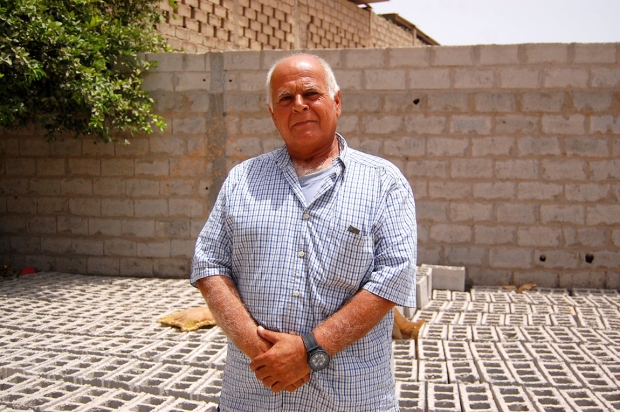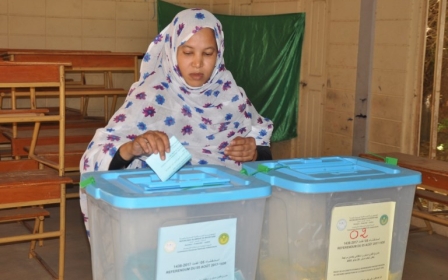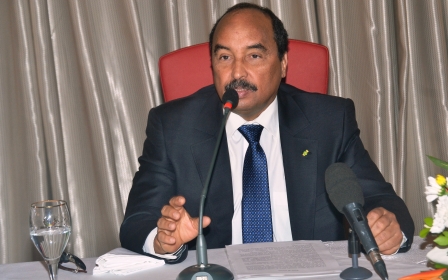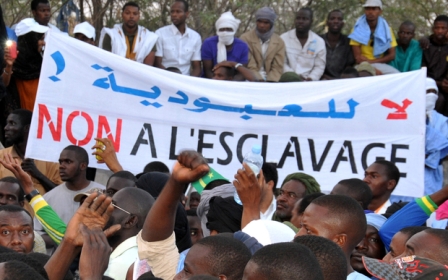Syrian refugees in Mauritania dream of resettlement
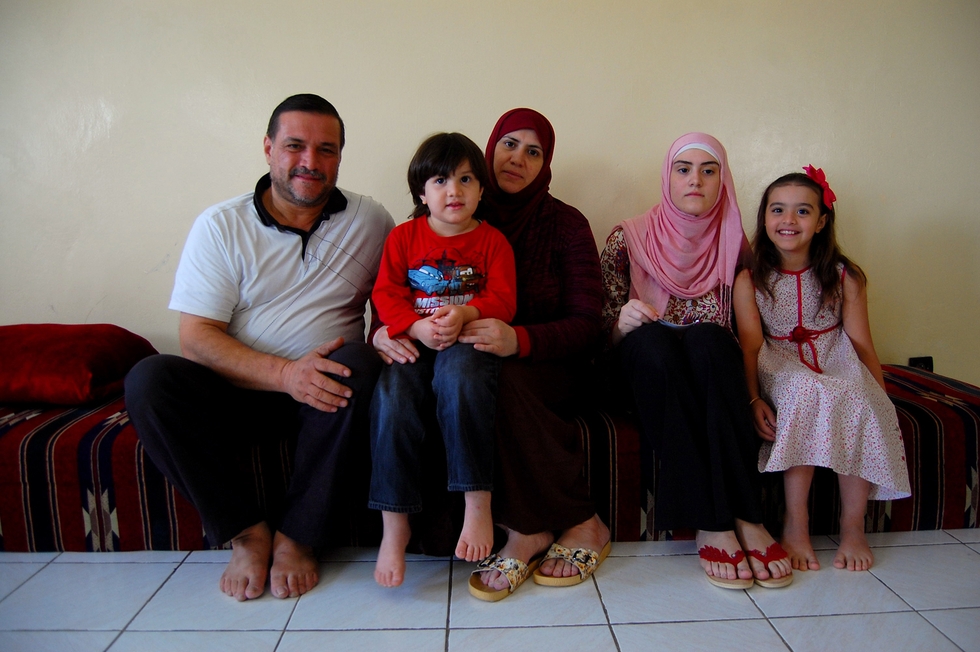
NOUAKCHOTT, Mauritania – Mohamad Mudar Oulabie knows he doesn't have many choices.
But after almost five years in Mauritania, an impoverished and isolated country on the coast of West Africa, the 52-year-old father of four is becoming increasingly frustrated.
Today, making an irregular crossing to Europe, despite numerous dangers, is on his mind. "That's the last resort," Oulabie told MEE from his family's living room in Nouakchott this month.
Oulabie said being smuggled to Europe is a journey that at least 20 other Syrians he knows have attempted from Mauritania. Most have been successful, including a family that made it to Germany, he said.
But the risks are well known.
After all, "it's called the Route of Death," he said.
Finding refuge
Oulabie decided it was time to leave Syria four years ago.
His home in Aleppo was hit by rockets and completely destroyed, and his family was forced to seek refuge in a local school, where they had to share a single bathroom with four other families.
"No jobs, no money, no electricity, no phones, nothing. No life," Oulabie said about Aleppo. "We were afraid for our lives because of the war."
It was 2013, and at that time Syrians didn't need a visa in advance to enter Mauritania.
No jobs, no money, no electricity, no phones, nothing. No life.
- Mohamad Mudar Oulabie
So, after an excruciating, 25-hour journey by bus from Aleppo to Beirut, in neighbouring Lebanon, Oulabie, his wife, and their children boarded a flight to Nouakchott, the Mauritanian capital.
It wasn't the first time Oulabie, a salesman and restaurateur, had been to Mauritania. He lived in Nouakchott from 2006 to 2010, where he had opened a restaurant. Before that, he had spent over a decade in Morocco for work.
Today, he owns a shoe store in Nouakchott, which he set up with the help of a micro-credit loan from the United Nations refugee agency (UNHCR).
But the transition of living in Mauritania as refugees has not been easy on the family.
"We feel like outsiders here," Oulabie said.
Poverty, malnutrition in Mauritania
Bordering the Atlantic Ocean and the Sahara desert, in the Sahel region, Mauritania suffers from high levels of poverty: More than half of the population (52.4 percent) lived in poverty in 2011, according to UN figures.
The country imports about 70 percent of its food, the World Food Programme estimates, and almost 27 percent of its citizens are food insecure during the lean season every year. Twenty-one percent of children under age five are chronically malnourished.
Despite such stark conditions, 428 Syrian refugees live in Mauritania, according to United Nations figures from the end of July.
Most Syrian refugees arrived after the war started in their country in 2011, though some were already in Mauritania when it began. Virtually all the families flew to Mauritania from Turkey or Lebanon. They could enter the country without a visa until last year.
Most live in Nouakchott, which is home to about one million people, or nearly a quarter of Mauritania's population.
"Coming from Syria, which is [a] different environment ... it's not easy to adapt [to] the situation in terms of living conditions, in terms of [economy], in terms of language," said Nabil Othman, the UNHCR representative in Mauritania.
Coming from Syria, which is [a] different environment ... it's not easy to adapt [to] the situation
- Nabil Othman, UNHCR
Othman told MEE that Syrian refugees have for the most part used Mauritania as a transit point to continue to Spain, often going from the Mauritanian coastal city of Nouadhibou by boat to Las Palmas, one of the Spanish Canary Islands.
But in recent years, Mauritanian and Spanish authorities have cracked down on illegal migration off the coast, and that route is virtually closed. "So people are stuck now," Othman said.
No prospect of naturalisation
Aref Aryan, also a Syrian refugee, has lived in Mauritania for 20 years.
Formerly a furniture trader and operator of a construction company, he now makes and sells cement bricks to other construction companies in Nouakchott.
Aryan told MEE that he last visited Syria in 2011. He planned to leave Mauritania at that time and re-establish his life in Idlib, where he hails from, but as the war worsened, he realised he could never go back.
"I'm wanted by the regime. I'm wanted by the Islamists. What can I do? How can I go back?" he said. He said one of his nephews has been killed and another nephew was disappeared, while his sister was detained after being stopped at a checkpoint in 2013.
His mother, who was 85 years old at the time, died of a brain clot only 10 days after the family's home was destroyed in the fighting, he said.
While Aryan said the situation for Syrian refugees in Mauritania may be better than that of Syrians living in refugee camps elsewhere, he complained that after two decades he still has not received permanent residency, or citizenship, in Mauritania.
"If there is no prospect of naturalisation," he said he prefers to be resettled with his family in "any country with respect for human rights".
His daughter, the eldest of his five children, is finishing a degree in medicine at the University of Nouakchott. He hopes she can continue her studies in Germany, and that the family will be able to join her there.
"The education of my children will force me to leave," he said.
Hopes for resettlement appear commonplace among Syrians in Mauritania. At least 41 Syrian refugees have been resettled in Finland to date, according to UNHCR.
While Oulabie, the Syrian father of four, described Mauritanians as "a kind people who understand and are welcoming," he said he also wants to be resettled in "any country other than Mauritania".
It's for the children, he said, who all suffer from epilepsy and struggle to get medicine and specialised care in Nouakchott. "They’re don't understand epilepsy [in Mauritania], they don't know how to treat it.
"We really want to be resettled," Oulabie said. "Things are hard."
Jillian Kestler-D’Amours reported on a fellowship from the International Reporting Project (IRP)
New MEE newsletter: Jerusalem Dispatch
Sign up to get the latest insights and analysis on Israel-Palestine, alongside Turkey Unpacked and other MEE newsletters
Middle East Eye delivers independent and unrivalled coverage and analysis of the Middle East, North Africa and beyond. To learn more about republishing this content and the associated fees, please fill out this form. More about MEE can be found here.


